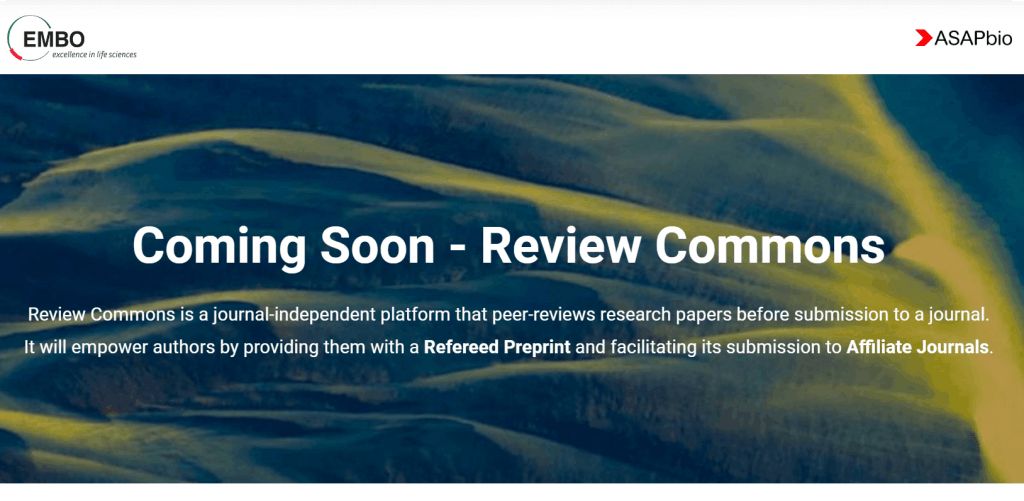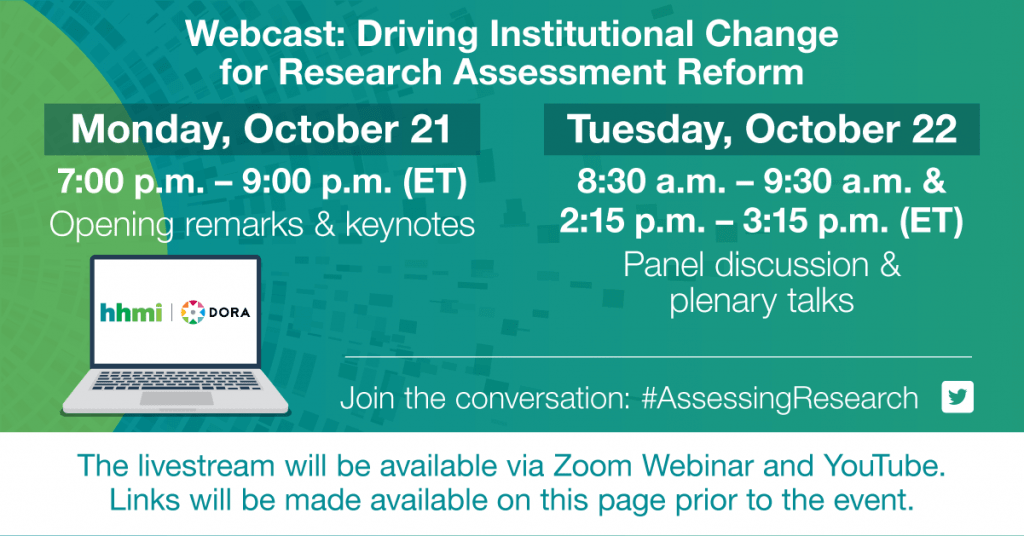Dear subscribers,
This month, we share upcoming opportunities to learn, discuss, and influence the future of preprints and transparent peer review.
Coming soon: Review Commons

We’ve partnered with EMBO to launch a new journal-independent platform that peer-reviews research papers before submission to a journal. Review Commons will provide authors with a Refereed Preprint (using bioRxiv’s new TRiP mechanism) and facilitate its submission to 17 Affiliate Journals.
Learn more at https://asapbio.org/review-commons-announcement, visit the website at reviewcommons.org, and follow on Twitter: @ReviewCommons.
Help us understand the adoption of preprints
Do you publish open access, post preprints, make your data readily available? All or none of the above?
The familiarity and usage of preprints is one open science practice included in eLife’s Research Practice Survey. As a community partner, we encourage you to take and share this survey with researchers across the life and biomedical sciences to help us learn about the prevalence of different research practices.
Take the survey now at https://www.surveymonkey.co.uk/r/RPSASAPbio – please do so before October 21.
The survey is anonymous and completing it will take approximately 15 minutes. Survey respondents can opt-in to a prize draw to win one of five $100 gift cards or an equivalent donation to a charity of your choice.
It’s the hope of all involved that the results of this survey will help us inform the development of relevant resources and policies and ensure these are in tune with the community’s needs and wishes. The results of the survey (including data) will be shared in 2020.
Preprints in the reform of research evaluation

DORA is collecting essays about reforming research assessment in preparation for their upcoming meeting (which you can follow via webcast on 2019-10-21 and 22). In responding to this call, we’ve envisioned three future scenarios where preprints may become more useful for evaluators with further innovation and development of tools and services to:
- Indicate transparency of reporting
- Check for methodological rigour
- Filter and highlight work of interest to a broad audience
Read this opinion piece on the DORA blog at https://sfdora.org/2019/10/07/what-do-preprints-need-to-be-more-useful-in-evaluation/; we invite you to leave feedback as comments on this version of the document (all comments are publicly visible).
Roundup
Here’s what’s been going on since our last newsletter:
- Reviews can be posted on bioRxiv preprints using CSHL’s Transparent Review in Preprints (TRiP) (2019-10-01)
- Knowledge Exchange share final report on preprints landscape analysis (2019-10-01)
Events
We’ll be discussing preprints and transparency in peer review at:
- Edinburgh, UK, 2019-10-15 to 17 (Naomi): FORCE2019 (panel: Who will influence the success of preprints and to what end?)
- Washington, DC, USA, 2019-10-21 to 22 (Jessica): Driving Institutional Change for Research Assessment Reform (webcast)
- San Francisco, CA, 2019-10-31 (Jessica): UCSF Biomedical Reproducibility Workshop Series (open to the UCSF community)
- Washington, DC, USA, 2019-12-07 to 11 (Jessica & Naomi): ASCB-EMBO 2019
Are you giving a talk about preprints, peer review, or transparency in science? You can browse and reuse slide decks we’ve presented before, and watch back talk recordings, from asapbio.org/resources.
Until next time,
Jessica Polka & Naomi Penfold
Want to receive these newsletters in your inbox? Subscribe here
UPDATE: this post was updated on October 8 to include a link to the DORA blog now available at https://sfdora.org/2019/10/07/what-do-preprints-need-to-be-more-useful-in-evaluation/. The email version of this newsletter does not include this link.






